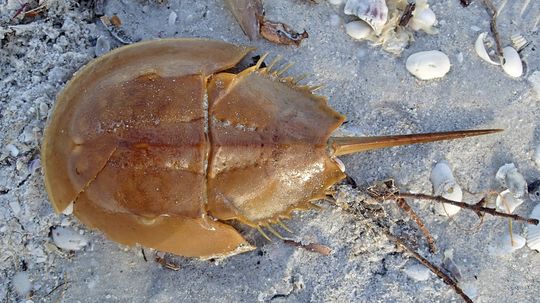With their ancient lineage dating back hundreds of millions of years, horseshoe crabs have long been considered living fossils. However, these remarkable creatures now face a new and unexpected threat – biomedical bloodletting. This practice, which involves extracting the blue copper-based blood from horseshoe crabs for its unique clotting properties, has put their population at risk.
A Delicate Balance Disturbed
Horseshoe crabs play a crucial role in maintaining the delicate balance of coastal ecosystems. Their eggs provide vital sustenance for migratory shorebirds during their long journeys, while adult horseshoe crabs help control populations of marine worms through feeding habits. Unfortunately, the increasing demand for their blood by pharmaceutical companies has disrupted this equilibrium.
An Unsustainable Harvesting Process
The process of harvesting horseshoe crab blood is not only detrimental to individual specimens but also poses a significant threat to entire populations. During extraction, up to 30% of an individual’s blood volume is removed before being released back into the wild. This invasive procedure weakens the immune system and leaves them vulnerable to infections and predators.
Searching for Sustainable Alternatives
In light of this alarming situation, scientists are actively exploring sustainable alternatives that can replace or reduce reliance on horseshoe crab blood in biomedical research. Synthetic substitutes and innovative technologies offer hope for minimizing harm inflicted upon these extraordinary creatures while still meeting medical needs.
A Call for Conservation Efforts
To ensure the survival and well-being of horseshoe crabs in our rapidly changing world, it is imperative that conservation efforts be intensified. Strict regulations must be implemented to limit the harvesting of horseshoe crabs and protect their breeding grounds. Public awareness campaigns can also play a crucial role in educating individuals about the importance of these ancient creatures and inspiring action to safeguard their future.
Preserving a Living Fossil
In conclusion, the biomedical bloodletting industry poses an imminent threat to horseshoe crabs, endangering not only their existence but also disrupting coastal ecosystems. It is our responsibility as stewards of this planet to take immediate action to conserve these remarkable creatures and find sustainable alternatives that do not compromise their well-being. By doing so, we can ensure that future generations will continue to marvel at the resilience and beauty of these living fossils.




